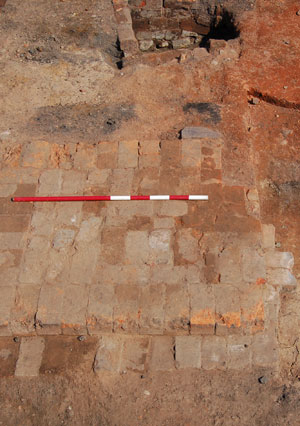
CONTACT
- T: 07966 501 981 / E: Alex Jones
- 16 Middle Park Road, Birmingham, B29 4NE
Consultancy
Carefully targeted impartial archaeological input may be required at several stages in the planning process:
- Early provision of quality archaeological information enables stakeholders to take informed strategic decisions, minimising potential for the waste of resources and unexpected programme delays.
- Where potential archaeological interests are identified, a planning application will need to be supported by archaeological information – comprising a desk-based assessment or historic building assessment, and where necessary, the results of a carefully targeted programme of trial-trenching or historic building recording.
- Post-determination, further archaeological work may be required. Careful targeting, costing and programming of such archaeological work is important to the successful delivery of a development.

Preliminary Appraisal
At project feasibility stage, a rapid archaeological appraisal will identify known archaeological and built heritage constraints, including potential ‘showstoppers’, helping a developer or their agent to assess their risks at an early stage, and, where necessary, to re-design their scheme.

Desk-Based Assessment or Historic Building Assessment
A desk-based assessment or historic building assessment will provide a detailed understanding of known archaeological and built heritage constraints. In addition to a full site inspection, a range of sources will be consulted at assessment stage, including:
- Historic Environment Record (HER)
- Historic maps, plans, illustrations and documents
- Published archaeological and historical reports

Archaeological Evaluation
Where potential archaeological interests are identified at desk-based assessment stage, an archaeological evaluation may be required to ‘map’ any constraints, and assess their potential significance. This information will permit:
- The planning authority to determine that no further archaeological work is merited, or
- An informed re-design of the development scheme, to exclude or limit disturbance to significant archaeological deposits – thus removing or reducing any requirement for a further stage of archaeological work, or
- The planning authority to scope a requirement for a further stage of archaeological work where necessary, enabling the developer to establish the cost and programme implications at the earliest opportunity.
Archaeological Mitigation
Post-determination archaeological mitigation can take a number of forms.
Post-determination archaeological mitigation can take a number of forms.
- A watching brief may be required to record archaeological deposits exposed during construction groundworks.
- An archaeological excavation may be specified to hand-excavate and record archaeological deposits in advance of construction.
- A programme of historic building recording may be required in advance of conversion or demolition.
In each case, the planning requirement will be discharged on completion of a report describing the project results.

Public Display and Interpretation
Public open days and site-based illustrated displays will raise the profile of your development and keep the public informed about recent discoveries

All work is undertaken in accordance with the Standards and Code of Conduct published by the Institute for Archaeologists